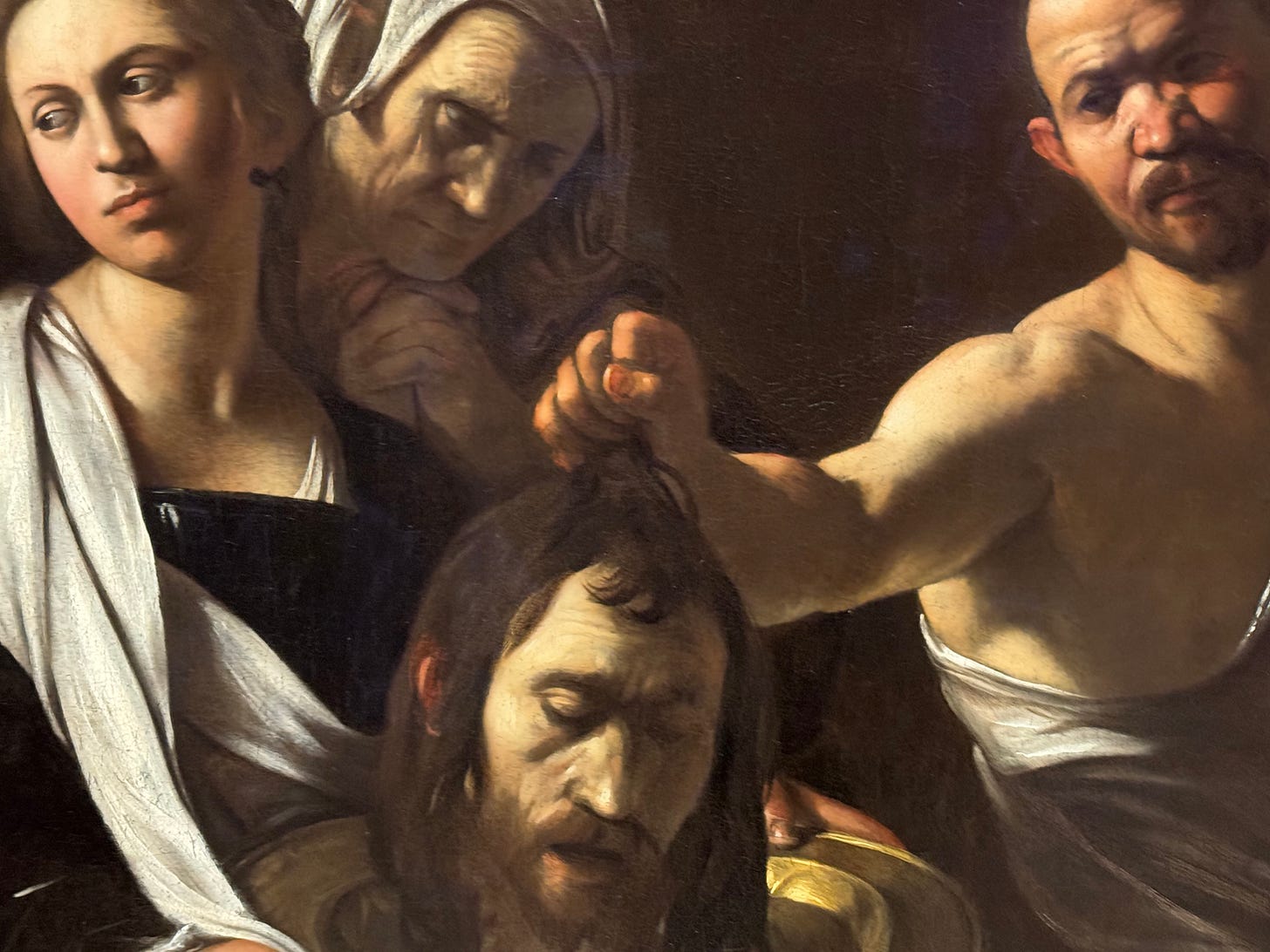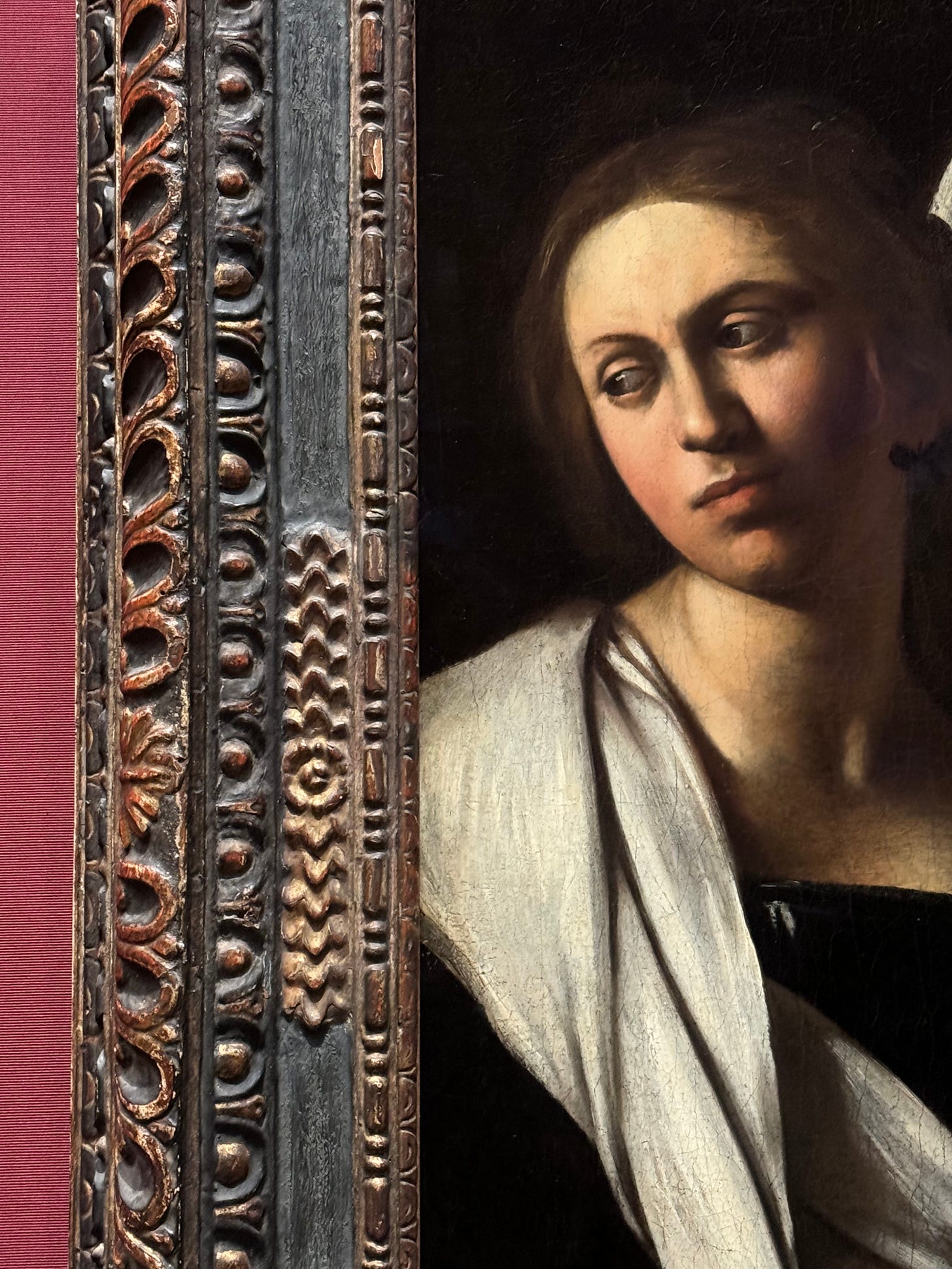the precursor to peace
when I think of john the baptist, I picture his head on a platter.
Below is an excerpt from an Advent essay published in Polaris. I hope you will read the full piece there and check out the other excellent essays published as well.
When I think of John the Baptist, I picture his head on a platter.
As the story goes, Salome, the daughter of King Herod’s wife Herodias, had requested John’s head at Herod’s birthday feast. Although Herod feared John, Herodias held hate towards him because he had rebuked Herod for marrying his brother’s wife. Therefore, when Salome was granted a favor from her father, her mother quickly seized the opportunity to get rid of John once and for all (Mark 6:16-29).
Years ago, I was captivated by Michelangelo Merisi da Caravaggio’s portrayal of John’s head being delivered to Salome. This past September, I finally visited the National Gallery in London to see this painting in person. I was enamored by it – lost in its cold, haunting hues.
Standing before it, I found Caravaggio’s depiction to provide a simple yet exquisite look into the biblical scene. John’s lifeless head, still held by the brutish executioner, hangs over the platter grasped by Salome, who cannot bear the sight. Her enigmatic gaze turns towards the light source, making her the most visible to see and yet most challenging to read. Finally, a maidservant stands over Salome’s shoulder, looking down on John’s head. We do not know who she is. Is she someone John had baptized? A new follower of Christ? A friend? A servant distraught by another example of the obtuse, kingly power to take the life of another on a whim? Perhaps she is all of them.
Given this association with John, I could only laugh when Polaris asked me to write a reflection on John’s ministerial introduction in Luke 3 and its connection to the theme of peace.
Peace?
The John who comes to my mind is one whose life abruptly collided with the executioner’s sword. However, reading John backward—from the last moments of his life to this moment where the word of God comes to him (3:3)—sheds light on the kind of peace that God offers and how it is brought about.
From the first days of his life, John was marked by a blessing of peace. His father Zechariah, filled with the Holy Spirit, echoes both the angel Gabriel and the prophet Isaiah in his own prophesy that John will “go before the Lord to prepare his ways” (Luke 1:76). “Because of the tender mercy of our God,” Zechariah continues, “the dawn from on high will break upon us, to shine upon those who sit in darkness and in the shadow of death, to guide our feet into the way of peace.” (1:78-79). John’s task is to prepare the way for the peace to come.
This tells us something important about peace.
Namely, that it does not spontaneously occur.




